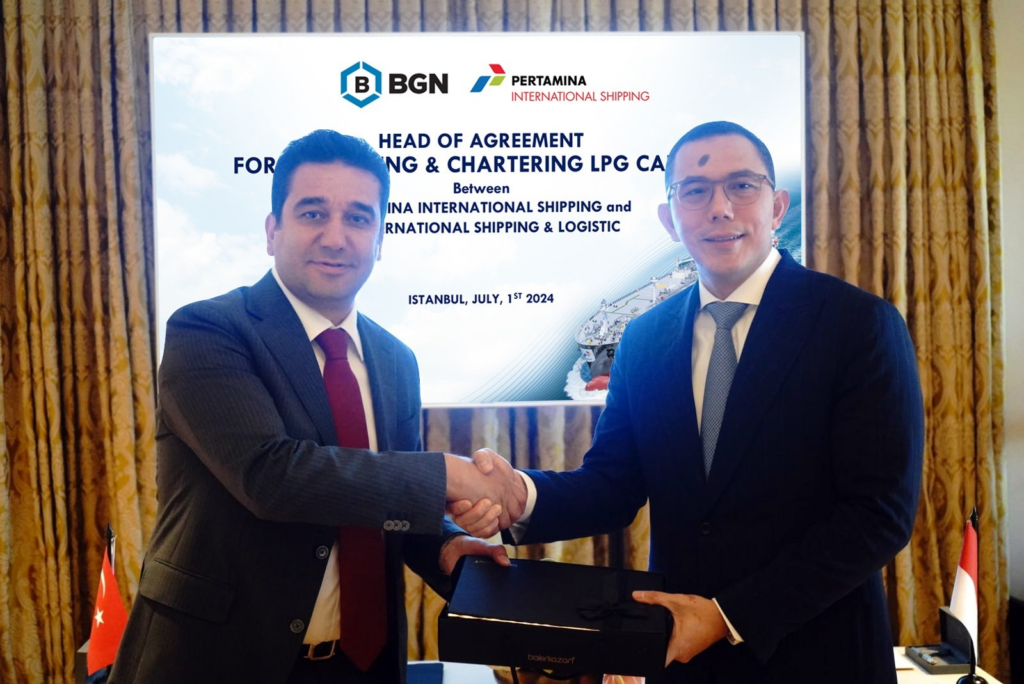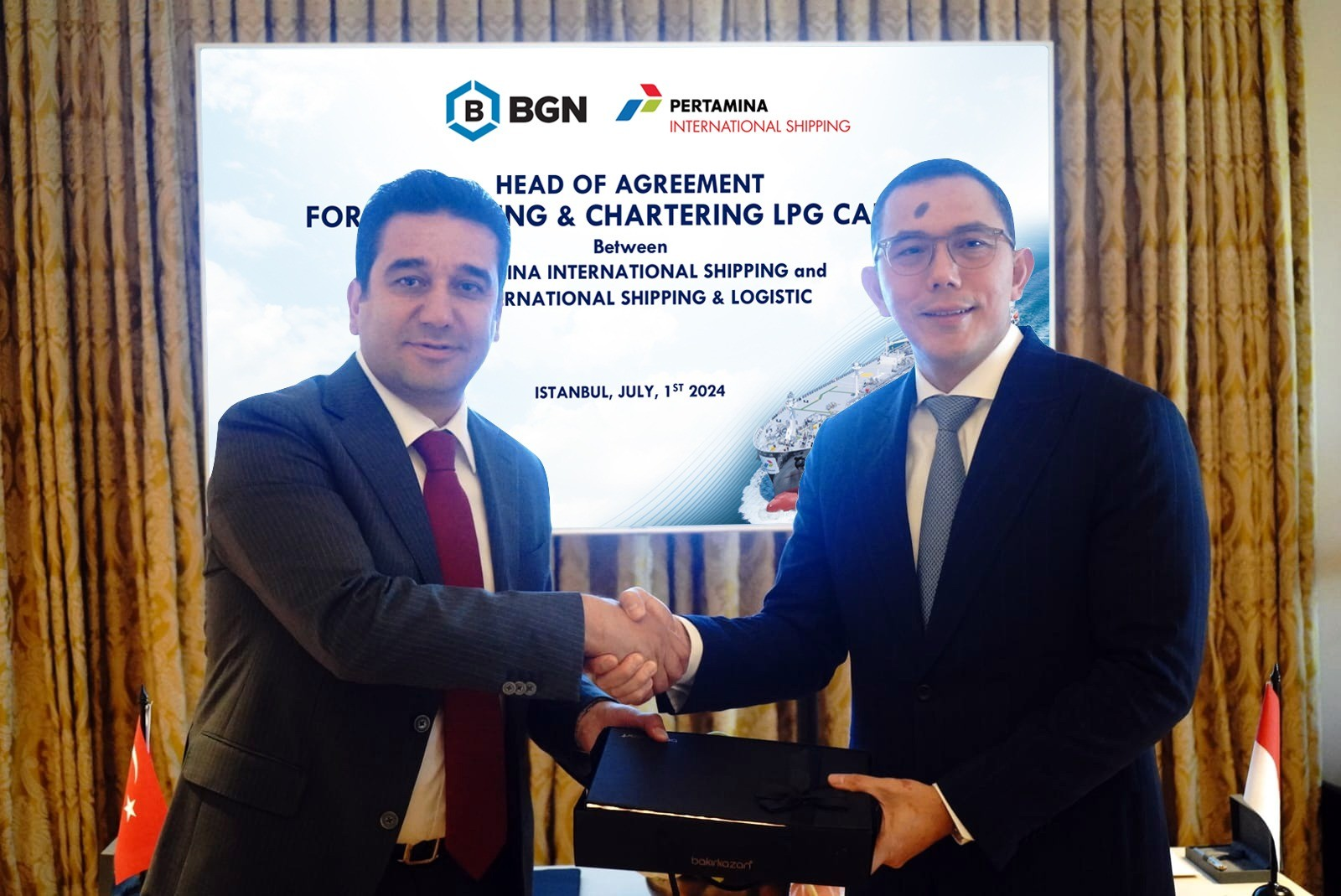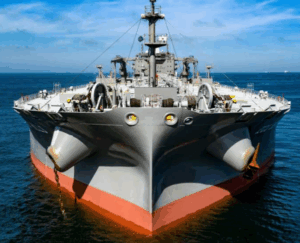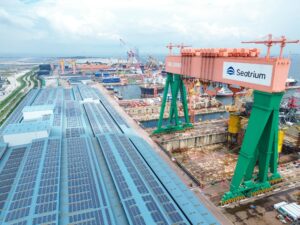
PT Pertamina International Shipping (PIS), a spin-off of PT Pertamina (Persero), Indonesia’s state-owned energy company, has teamed up with international commodity trader BGN to build two new giant LPG vessels.
The duo has joined forces for the joint development and operation of new liquid petroleum gas (LPG) transport vessels.
The pair will be built by a large shipbuilder, HD Hyundai Heavy Industries.
The deal, which was signed on July 1 in Istanbul, Türkiye, by PIS chief executive, Yoki Firnandi, and BGN chief executive of trading, Emin Imanov, with BGN Group chief Rüya Bayegan in attendance, includes a joint ownership structure with BGN’s shipping provider and long-term vessel rental by BGN.
“BGN is a strategic partner for PIS and Pertamina Group in supporting Indonesia’s energy security. Following our first agreement in Abu Dhabi last year, we are now committing to co-own two VLGC units set for delivery in 2027,” said PIS chief executive Yoki Firnandi.
The new, dual fuel VLGCs will each have a capacity of 88,000 m³ and may be operated with traditional fuel oil and LPG.
Each vessel will have a dwt of approximately 55,000 MT, a draft of around 12 meters, and a length of about 230 meters.
Both parties are considering the establishment of a new joint venture or utilizing an existing company for joint VLGC ownership.
Earlier this year, PIS and BGN collaborated on the procurement of VLGCs Tulip and Bergenia.
BGN chief executive of trading Emin Imanov expressed strong support for the continued partnership.
“The new, efficient LPG carriers will support BGN’s growing, international energy trading platform and I am confident that this partnership will yield positive results for both parties,” he said.
The collaboration also explores potential partnerships in the energy transition era, including the transportation of LPG and petrochemicals.
According to the ministry of energy and mineral resources of the Republic of Indonesia, LPG consumption in Indonesia reached 8.7 million tonnes in 2023, marking a 1.73% increase from the previous year, and the highest consumption level in a decade.



